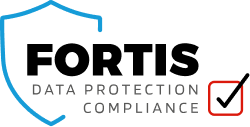Whether you are a sole trader, a small business owner or a large corporation, your website is at risk of being hacked at any time, if it isn’t properly maintained. In our latest blog post, we take a look at a local cleaning company whose website was compromised last year, and the consequences it had for the business. We also discuss how to prevent your website from falling victim to a website hack, and what to do if it does happen to your business.
What Happened to a Cleaning Company’s Website
A local cleaning company’s website was compromised in July 2024, shortly after it was launched. It only recently came to our attention, when we noticed that almost 3,000 spam blog posts (splogs) had been published on the website. The blogs consisted entirely of auto-generated content.
Upon further investigation, we found that the hackers had created additional users with admin permissions. They had also added hidden links throughout the website and tampered with the meta tags (page titles and meta descriptions).
Until then, the business owner was totally unaware of the website hack as no one had been maintaining the website.
We advised the business owner to change all relevant passwords immediately and remove the unauthorised users. Unfortunately, we were unable to restore a version of the website from before the hack occurred as only a week’s worth of backups were available. We recommended that the business owner manually delete the spam blogs and use a security plugin to scan and remove any malicious code.
The above was a lengthy process, which could have been avoided if a few simple website security best practices were followed.
Why Do Hackers Target Websites?
In the case of our cleaning company, the sole purpose of the hack was the promotion of online gambling sites. It is a specific type of spam known as SEO spam. The hackers injected backlinks into the website to attempt to boost search engine rankings of the casino sites. We believe that no data was stolen.
However, hackers can have much more malicious intentions, especially when the goal is financial gain – they can encrypt your data and demand a ransom payment in return for the decryption key. A ransomeware attack can have severe implications for your business.
Consequences of a Website Hack
As mentioned previously, the hackers modified the meta tags of the cleaning company’s website and published spammy content. These are the main elements that influence a website’s SEO (search engine optimisation). As a result, the company’s website was blacklisted by Google. We suspect that it will eventually be removed from other search engines too. Search engines penalise victimised websites, and unfortunately once a website is de-indexed, this process can be very difficult to reverse, even after spam and malware are removed.
If your business relies on organic traffic to generate leads and sales, then the removal of your website from search engines can have detrimental effects. Potential customers can’t find your business or purchase from your website if they cannot search for it online.
In addition to loss of traffic, a hacked website may slow down, redirect to other low quality websites, or even be suspended by your hosting provider. All of these create a negative impression for customers, therefore damaging your online reputation.
If your website suffers from a data breach, resulting in loss of personal data, your business could be subject to regulatory fines. This in turn can lead to loss of trust, customers and even revenue!
What are the Causes of a Website Hack?
I am tempted to argue that the main cause of a website hack is negligence. Once your website goes live, it’s easy to treat website security as a “set-and-forget” activity. But in fact, your website needs ongoing care and attention just like any other asset of your business. A lack of awareness of basic cyber security principles can lead to unintended and expensive consequences!
It can be difficult to identify the exact cause of a compromise, but these are the most common causes:
- Outdated CMS or Plugins: Using outdated versions of your content management system (CMS), plugins, or themes can leave your website vulnerable to known security exploits.
- Weak Passwords: Using weak or easily guessable passwords for your CMS, FTP, or database can enable hackers to gain unauthorised access to your website.
- File Permissions: Incorrect file permissions can allow hackers to modify or upload malicious files to your website.
- SQL Injection: Hackers can inject malicious code and extract/modify sensitive data through vulnerabilities in your database or SQL queries.
- Cross-Site Scripting (XSS): A vulnerability in your website’s code can allow hackers to inject malicious JavaScript code and steal user data or take control of user sessions.
- Brute Force Attacks: Hackers may use automated tools to try a large number of password combinations to gain access to your website.
- Phishing or Social Engineering: Hackers may use social engineering tactics to trick you or your team into revealing sensitive information, such as passwords or login credentials.
- Malicious Plugins or Themes: Installing plugins or themes from untrusted sources can introduce malicious code to your website.
What are the Symptoms of a Hacked Website?
Signs of a compromised website include:
- Slow response times
- Redirects to other websites
- Removal from search engines
- Unusual login attempts or activity
- Modified or new files on your website
- Changes to your website’s content or layout
- Unexplained increase in website traffic or resource usage
- Errors or warnings from your website’s security plugins or tools
✅ Pro tip: check Google Search Console for any warnings of suspicious activity that may impact your website’s search performance.
How to Fix a Website Hack
Firstly, don’t panic! Remain calm and assess the extent of the damage. Then, proceed as follows:
- Immediate Action: Change all passwords associated with your website, including your CMS (content management system), FTP, and database passwords. This will prevent further unauthorised access.
- Backup and Scan: If you have a recent backup of your website, restore it. Then, scan your website using a security plugin (like Wordfence, MalCare or Sucuri) to identify and remove malicious code.
- Update CMS and Plugins: Ensure your CMS and all plugins are up-to-date, as outdated versions can have security vulnerabilities that hackers can exploit.
✅ Pro tip: use a tool such as Sucuri’s free website malware and security checker to scan your site for malware infections, outdated software, and other vulnerabilities.
How to Prevent Your Website From Being Hacked
Platforms such as WordPress, Joomla, Drupal etc. can develop vulnerabilities over time. It’s your responsibility to ensure that these are addressed before hackers can exploit them. Preventing your website from being hacked all comes down to proper maintenance.
- Regular Updates: It’s essential to regularly update your CMS, plugins, and themes.
- Passwords and MFA: use strong passwords and set up multi-factor authentication.
- Monitor for Malware: Regularly monitor your website for signs of malware or suspicious activity. You can use security plugins to detect such issues.
- Hosting: Choose a reputable package with features such as web application firewall (WAF), SSL certificate, DDoS protection and regular backups.
✅ For a full list of measures to protect your WordPress website, please read Securing Your Website: A Guide for WordPress Users.
Backup, backup, backup!
We cannot stress enough the importance of keeping backups of your website (and other important data). Backups are important for several reasons. They enable you to restore your website if it fails due to a plugin update, an error, or in the unfortunate event of a compromise. This data would be very difficult, if not impossible, to retrieve if backups are not in place.
It is recommended to keep multiple backups:
- One in the cloud (e.g. Dropbox, Google Drive)
- One on a physical device in a different location from where you usually work (such as an external hard drive).
If using an external hard drive, disconnect the device from the internet when you are not using it.
Regularly test your backups to ensure that they are working, and allocate sufficient storage space to store the files.
✅ Pro tip: where possible, automate backups so that you don’t have to remember to manually create them.
Your Next Steps
Take a moment to analyse your website’s maintenance strategy. Ask yourself a few questions:
- Who maintains your website?
- How often are plugins updated?
- Do you monitor login activity?
- Are you using strong, unique passwords?
- Have you removed users who no longer require access?
- Are regular backups being made?
Remember, the key to preventing website hacks is a secure website, which can be achieved through regular, ongoing maintenance. For support with website security, or dealing with a hacked website, contact us today!


0 Comments